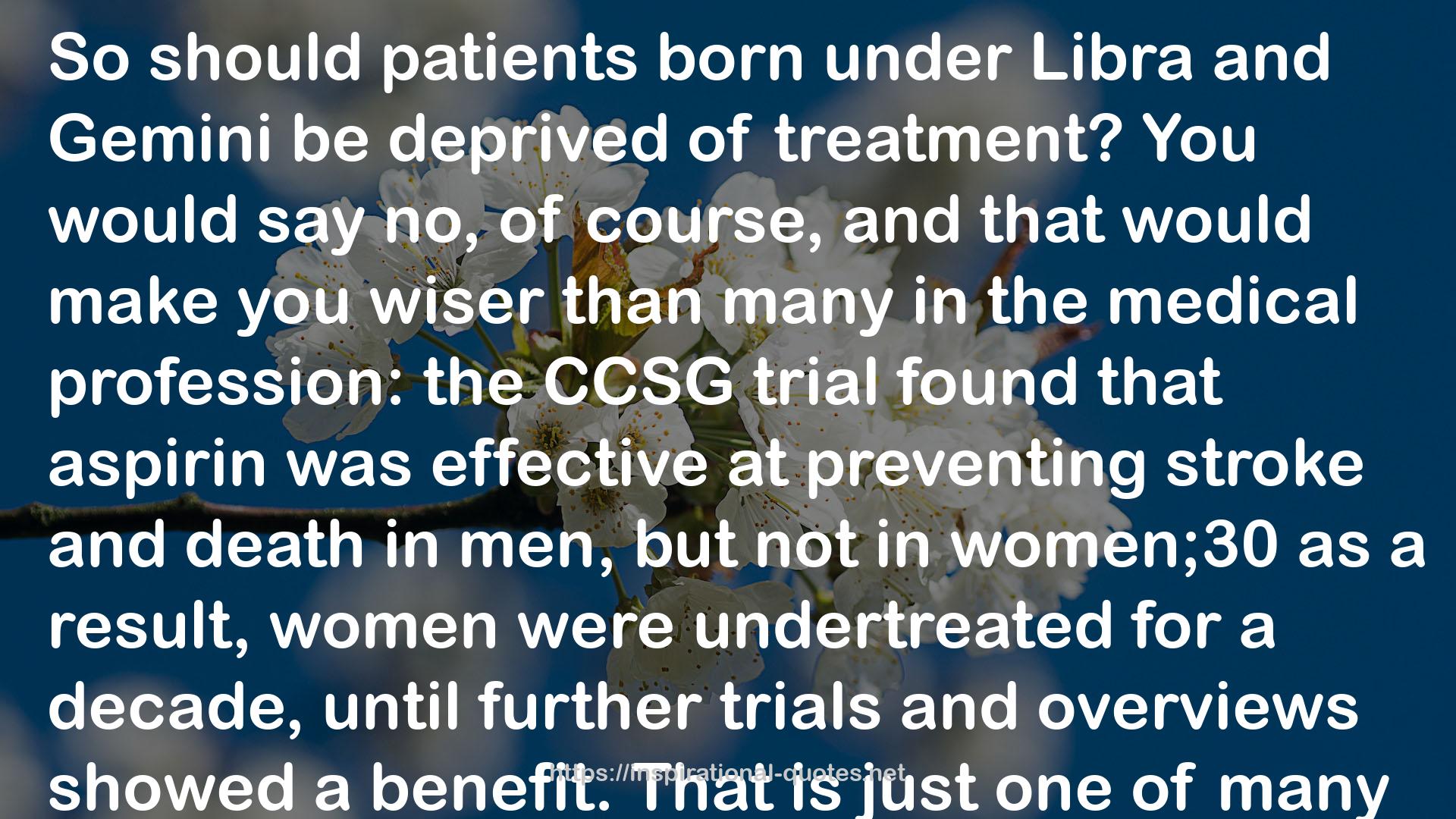" So should patients born under Libra and Gemini be deprived of treatment? You would say no, of course, and that would make you wiser than many in the medical profession: the CCSG trial found that aspirin was effective at preventing stroke and death in men, but not in women;30 as a result, women were undertreated for a decade, until further trials and overviews showed a benefit. That is just one of many subgroup analyses that have misled us in medicine, often incorrectly identifying subgroups of people who wouldn’t benefit from a treatment that was usually effective. So, for example, we thought the hormone-blocking drug tamoxifen was no good for treating breast cancer in women if they were younger than fifty (we were wrong). We thought clotbusting drugs were ineffective, or even harmful, when treating heart attacks in people who’d already had a heart attack (we were wrong). We thought drugs called ‘ACE inhibitors’ stopped reducing the death rate in heart failure patients if they were also on aspirin (we were wrong). Unusually, none of these findings was driven by financial avarice: they were driven by ambition, perhaps; excitement at new findings, certainly; ignorance of the risks of subgroup analysis; and, of course, chance. "
― Ben Goldacre , Bad Pharma: How Drug Companies Mislead Doctors and Harm Patients
